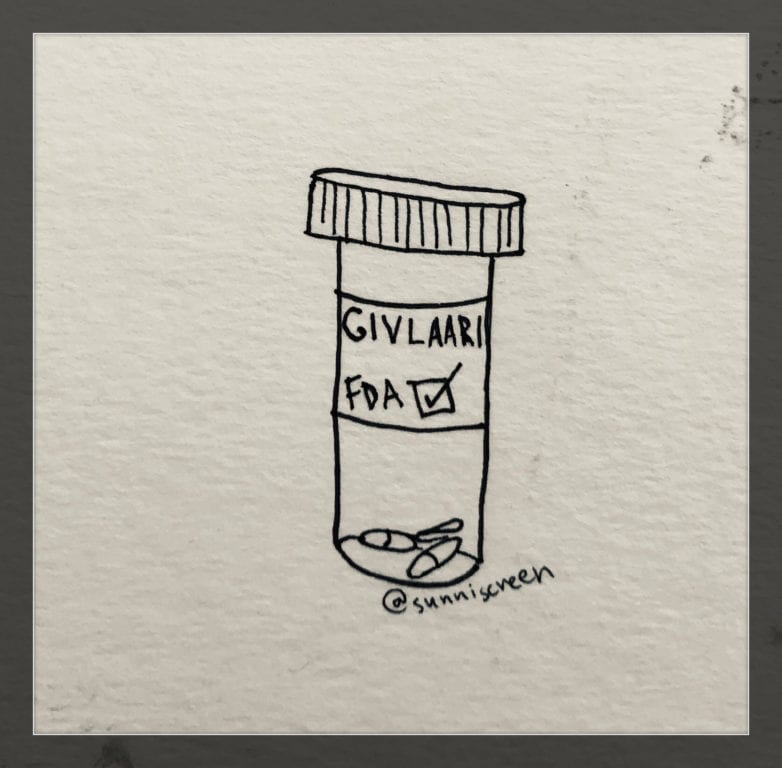As originally reported in Biospace, there’s good news today for adult patients with acute hepatic porphyria in Europe, a genetic disorder which causes pain and paralysis. The European Commission has granted market authorization for a new treatment option known as Givlaari (givosiran), a medicine which not only treats symptoms and reduces chronic pain, but also reduces the likelihood of the painful, characteristic attacks of the disease for the first time ever. This is the first treatment option approved for the disorder.
Acute hepatic porphyria
Acute hepatic porphyria (AHP) is a metabolic disorder which interferes with the body’s production of heme, a critical pigment in the hemoglobin which is critical for binding and transporting oxygen through the bloodstream to the cells. Because this disease blocks the heme production, the body accumulates too much of the toxic chemical porphyrin. The buildup of porphyrin interferes with oxygen transportation and causes oxygen depletion.
This buildup is responsible for painful ‘porphyria attacks.’ These attacks can be triggered by behaviour such as stress, alcohol, medicines, infections, low calorie diets, or by internal triggers like hormonal shifts or menstruation. Once triggered, these attacks can cause extreme pain, seizures, paralysis, vomiting, intense abdominal cramping, respiratory failure, chronic pain, muscles weakness or sensory loss, or even psychological effects like irritability, anxiety, hallucinations, and confusion.
The Novel Drug
Until now, patients have only been able to access treatment that addressed the pain from attacks, which are known to be extreme and unrelenting. This new drug reduces the likelihood of attacks in the first place. Thus it better reduces the disease’s impact on life, rather than mediating the symptoms. Dr. John Maraganore, the CEO of Alnylam Pharmaceuticals that developed the drug, said in a statement:
“Today’s approval of GIVLAARI marks a historic moment for patients and families living with this devastating genetic disease, as there are currently no approved medicines in Europe proven to decrease the frequency of attacks and reduce the chronic pain that many patients suffer.”
The new drug went through clinical trials with 94 patients, and the researchers found the patients who received the drug experienced 74% fewer attacks than those on the placebo. The drug does have side effects, including nausea and reactions on the injection site. It could also cause allergic reactions and affect kidney or liver functioning. Patients and doctors are advised to monitor these organs while using it. It has received Orphan Drug designation, Breakthrough Therapy designation, and Priority Review designation.
The fear of not knowing when an attack will strike, combined with ongoing symptoms between attacks, affects every aspect of patients’ lives, limiting their ability to work and maintain a social life.” – Dr. Eliane Sardh
Givosiran is a life-changing treatment for acute hepatic porphyria patients.
” Some of our patients have been able to achieve significant personal and professional milestones that would not have been possible before.”







